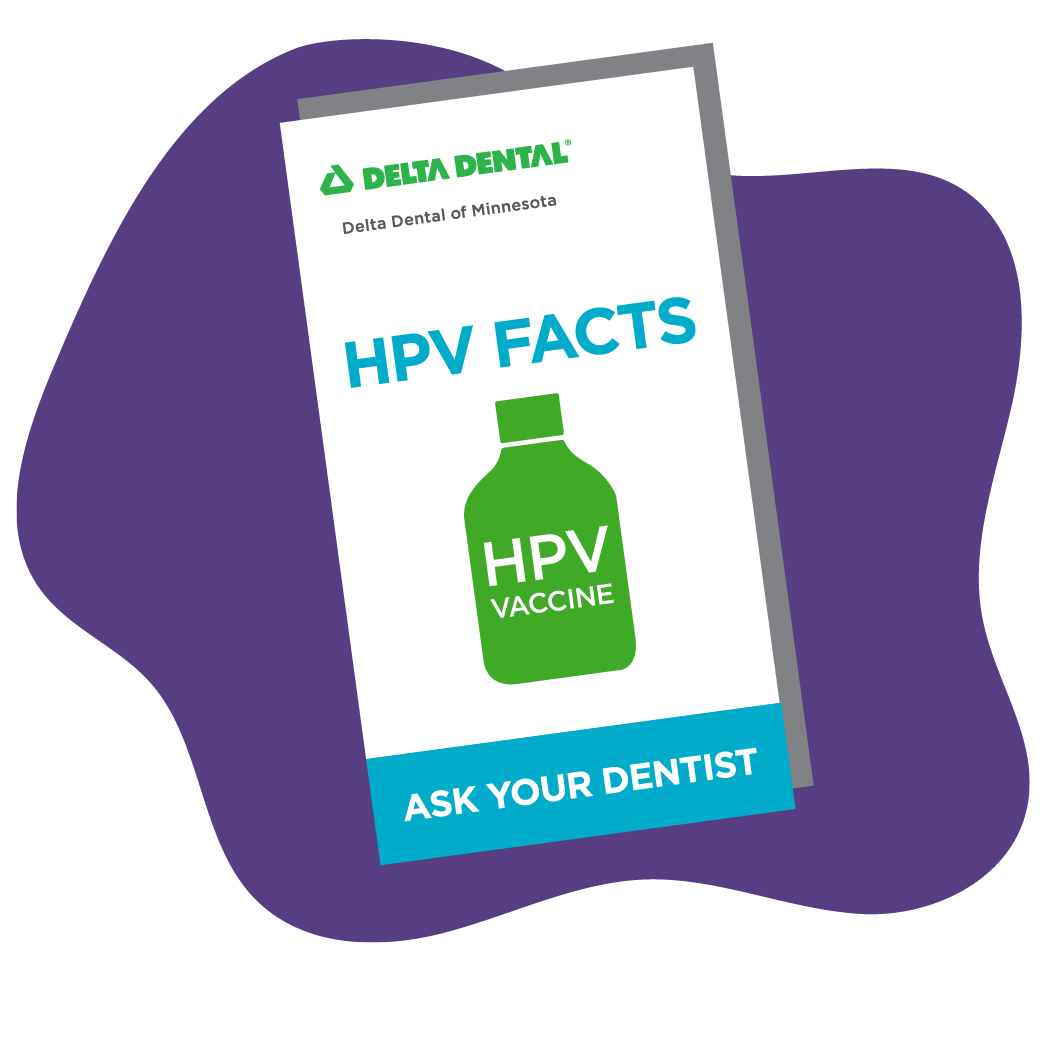
Just as your dentist is an expert at keeping your smile healthy, they also know a thing or two about your overall health. As we know, oral and overall health are very closely related. This means during your regular preventive care visit, your dentist may be the first one to notice small signs or symptoms inside the mouth that can point to other larger health concerns. Even though medical and dental treatments are looked at as separate – the HPV vaccine is an area where integration between the two is important.
Human papillomavirus is a virus that can cause cancer. HPV infection is thought to cause 70% of cases of cancer in the back of the throat and tonsils (also known as oropharyngeal cancer). It’s estimated that there will be 54,540 new cases of oral cavity and pharynx cancer in 2023 alone(1). HPV causes six types of cancer: cervical, head and neck, penile, vulvar, vaginal and anal The HPV types that cause the majority of cancers are contained in the HPV vaccine. It’s the first vaccine that is known to prevent cancer! This is why your dentist may recommend that you or your child get vaccinated against HPV.

The HPV vaccine is approved for ages 9 to 26 but works best between 9 to 12 years of age. The vaccine is also approved for ages 27 to 45 after discussion with your health care provider. If you have questions, this is a good time to initiate a conversation with your health care team, including your or your child’s dentist.
The American Dental Association (ADA) passed the recommendation for dentists to support and help provide the HPV vaccination to patients in order to prevent these dangerous types of cancers in October of 2018 during America’s Dental Meeting.
Resources on oropharyngeal cancer & the HPV vaccine:
1 Cancer Stat Facts: Oral Cavity and Pharynx Cancer
Info for patients:
This information in this post is for general educational purposes only and does not warrant or represent any information as related to health as specifically appropriate for you. It is not intended to be medical advice or replace the relationship that you have with your health care providers. You should always seek medical advice on any diagnosis or treatment from a qualified health care provider. The information is provided “as is” without any representations or warranties, express or implied.






